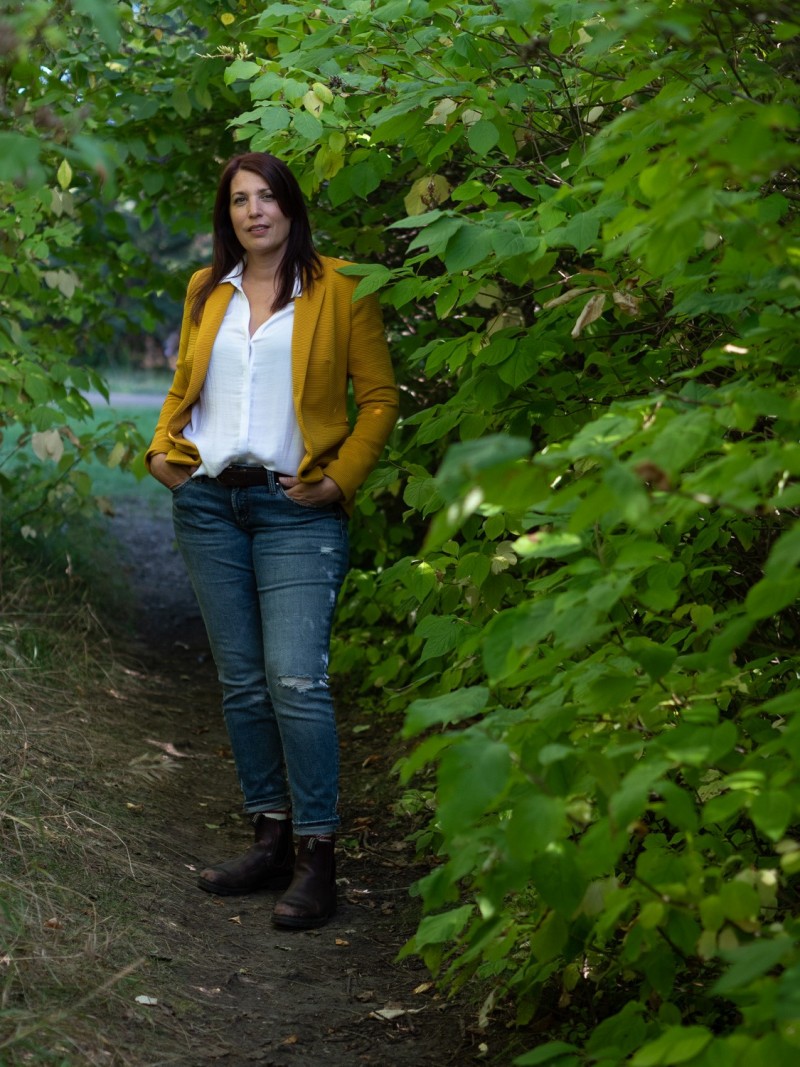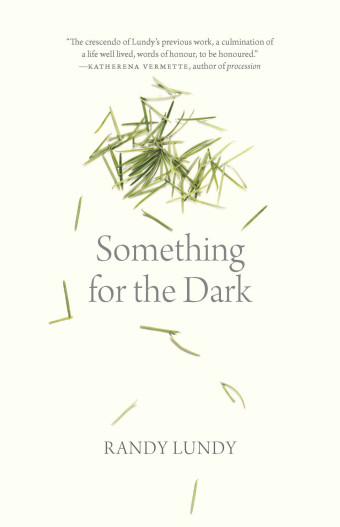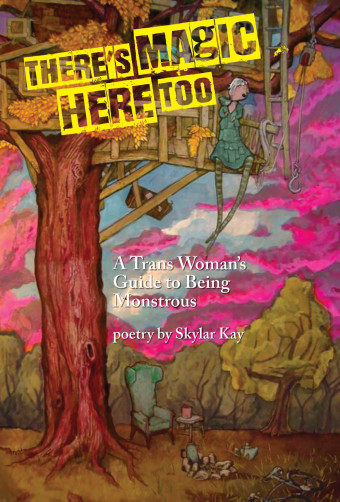Putting out a collection of poetry during the coronavirus pandemic is difficult, but Rayanne Haines has become used to working through trauma in her life and in her art.
“Ninety-five percent of the book was written in one year as a way to mark a journey of trying to heal after my son’s suicide crisis,” says the Edmonton-based writer and arts administrator.

- Tell the Birds Your Body Is Not a Gun
- Rayanne Haines
- Frontenac House Ltd.
- $19.95 pb, 96 pages
- ISBN: 978-1-989466-21-6
“Maybe I thought that if I took my grief and anger and anxiety and put it on the page, it would take it out of my body. And maybe the book would take it out of other people’s bodies too.”
The result is Haines’s Tell the Birds Your Body Is Not a Gun.
Though this is her second book of poetry and her seventh book overall, the process for this book was unique.
“With this book, my goal was to write every day to try and understand the grief that consumed me even though my son did not die by suicide,” Haines notes.
“Yet in the writing, I opened to my own unexplored grief from abusive experiences in my childhood and first marriage, unspoken intergenerational trauma, and my personal relationship with depression and anxiety. This was unexpected and not what I had planned at all but my commitment had been to write the journey, so I did.”
As one might expect with such an arduous and new undertaking, doubts crept in along the way.
“I questioned my right to even talk about loss and death, and I think that questioning grounded the manuscript in truth,” Haines says.

The material also demanded that Haines expand her ways of writing poetry.
“The crisis that manifested the creation of this book happened slowly and then all at once from all different angles,” says Haines. “We were consumed by it and the chaos of it. I realized very quickly that the content of the book needed to reflect this chaos and, also, the chaos of healing.”
This adaptation led to exploring different forms alongside more straight-ahead poems.
“Some of the pieces needed to not fit in the structure of a poem,” says Haines. “Some needed to be fleshed out more. ‘Form Letter A’ was a real letter I sent to my son’s school. ‘Form Letter B’ was what I wanted to say. I wasn’t willing to shift those pieces into something different. I sat with my writing and let each piece shape itself. This was the only way I could conceive of writing this journey.”
Now that Tell the Birds Your Body Is Not a Gun has been published, Haines’s goals for the book are as modest and as ambitious as the poems themselves.
“To say I hope it reaches people who need it, is one of the answers I can give,” she says. “Also, I want it to somehow convey that our grief and trauma is real, no matter who we are or what we grieve. I hope it can open doors to conversations about mental health.
“But also, if it only works as a container to hold the trauma I don’t want to hold anymore, that’s okay too.”













